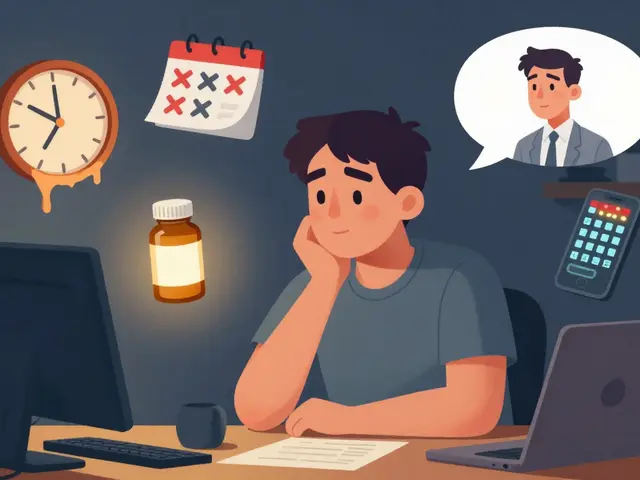July 2023 — Practical Health Guides from PillPack Supplies
Fast heartbeats, stubborn pain, sleep trouble, skin flares — July brought short, useful reads that tackle common problems with clear next steps. If you scanned our posts this month, here’s what matters and what you can do right now.
First up: supraventricular tachycardia (SVT) showing up with congenital heart disease. If you or a child has a congenital heart defect and notices sudden racing episodes, don’t shrug it off. SVT can coexist with structural problems and needs rhythm monitoring, an EKG, and often a cardiology referral. Simple measures like avoiding stimulants and keeping follow-up appointments make a big difference. In many cases, medication or a minimally invasive procedure controls the rhythm well.
We also looked at nebivolol as a possible preventive for migraines. Nebivolol is a beta-blocker with vasodilating effects, and some clinical reports show reduced migraine days for certain patients. Talk to your doctor before trying it — especially if you have low blood pressure, asthma, or take other heart meds. If prescribed, track headache frequency and side effects for a few months to see if it’s working.
On emotional health, Parkinsonism often brings anxiety and depression alongside movement symptoms. It’s normal to feel overwhelmed. Practical steps: tell your neurologist about mood changes, consider therapy or support groups, and ask about antidepressant options that work with Parkinsonism medications. Small routine changes — daily walks, sleep consistency, structured social time — help stabilize mood.
Postherpetic neuralgia was another focus. That lingering nerve pain after shingles can be brutal, but treatments exist: topical lidocaine patches, oral gabapentin or pregabalin, tricyclic antidepressants, and sometimes nerve blocks. If pain persists beyond the rash, seek treatment early — pain control is easier to manage before it becomes chronic.
Thyroid deficiency can quietly cause joint aches. If you have unexplained joint pain plus fatigue, weight changes, or cold sensitivity, ask for a TSH and free T4 test. Treating hypothyroidism often eases joint stiffness and improves energy. Don’t self-adjust doses — work with your provider to find the right replacement dose.
For plaque psoriasis, moisturizer choice matters. Pick thick, fragrance-free creams with ingredients like salicylic acid, urea, lactic acid, or ceramides to soften scales and restore the skin barrier. Apply right after bathing to lock in moisture and use gentle cleansers to avoid irritation.
Quick takeaways
If a symptom sticks around — racing heart, ongoing pain, new mood changes, stubborn skin flares — get evaluated. Many effective treatments exist, and early action usually gives better results.
How to use these posts
Use these articles as practical checklists: note symptoms, try simple lifestyle changes, and bring specific questions to your clinician. Save any tracking (headache diary, sleep log, pain scale) to speed diagnosis and treatment decisions.
Want the links to each full post or a printable checklist from this month? Tap the archive list on the site and pick what you need — each piece was written to help you act, not to confuse you.











